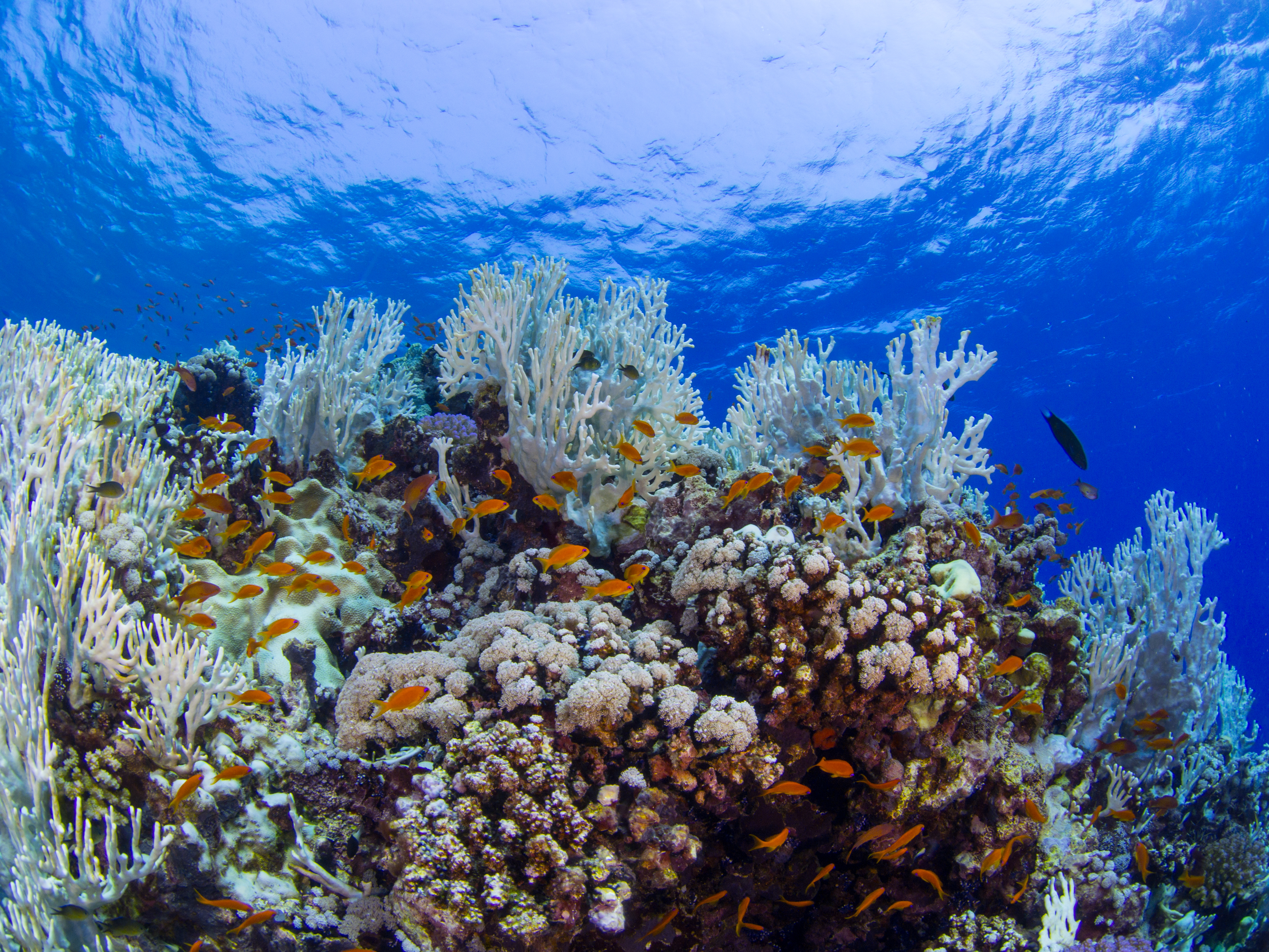
Oxygen keeps coral reefs alive
Study with participation from the University of Konstanz substantiates: Ocean deoxygenation caused by climate change and coastal pollution massively affects coral reef ecosystems.
The existence of coral reefs, in all their abundant biodiversity and beauty, relies largely on a complex symbiosis between reef-building corals and their intracellular microalgae. This finely tuned, fragile partnership is constantly under threat from environmental stress - most notably the twin effects of ocean warming and ocean acidification caused by climate change. A study conducted by an international research consortium with participation of biologist Professor Christian Voolstra from the University of Konstanz now has found that a third factor also poses a threat to coral reefs: Ocean deoxygenation, the loss of oxygen, could pose an even greater and more immediate threat to coral reef survival. These findings have been published in the current edition (31 March 2020) of the scientific journal Nature Climate Change.
The paper brings together existing biological, ecological, and geochemical evidence to consider the broader role for ocean deoxygenation in global coral reef degradation. “The threat of ocean deoxygenation to coral reefs has largely been ignored and remains unaccounted-for in predictions about future reef health. Measurements taken over the last 50 years show that oxygen levels in the world’s oceans have already declined by around two percent, largely due to the dual forces of global climate change and coastal pollution caused by nutrient runoff”, says Christian Voolstra, professor of genetics of adaptation in aquatic systems at the University of Konstanz.
Lead author Dr David Hughes, a Research Associate at the University of Technology Sydney, Australia comments: “Our oceans are slowly suffocating and although we have some understanding about deoxygenation in the open ocean, this process has been largely overlooked in coastal tropical reef systems. Oxygen is a relatively easy environmental variable to measure, but there is surprisingly very little data available for coral reefs.”
The authors, who include scientists from the University of Konstanz, Germany, the University of Technology Sydney and the University of Copenhagen, Denmark, say this lack of data makes it very difficult to assess what normal oxygen levels are on coral reefs or the dissolved oxygen threshold at which reef areas might become “dead zones”.
Associate Professor David Suggett, senior author and leader of the Future Reefs Research Program at the University of Technology Sydney said that understanding the significance of deoxygenation for places like the Great Barrier Reef is crucial: “The impact of dissolved oxygen levels on the stress resilience of coral is one of the key determinants to more accurately predict the future for coral reefs. It’s possible and probable that declining oxygen availability has amplified, and will continue to amplify, the impact of catastrophic events such as heat-wave driven mass coral bleaching. Capacity for organisms to resist stressors is severely compromised under reduced oxygen availability. It’s why we give oxygen to humans under trauma”, he said.
The study, which is supported by the Australian Research Council, explains that sustainable management of resources, such as in agricultural and drinking water usage, are good examples of practices to maintaining oxygen stocks of coastal reefs. Everyone has a role to play to ensure our reefs don’t suffocate further”, says Associate Professor Suggett.
Key facts:
- Original publication: David J. Hughes, Rachel Alderdice, Christopher Cooney, Michael Kuhl, Mathieu Pernice, Christian R. Voolstra, David J. Suggett. Coral reef survival under accelerating ocean deoxygenation. Nature Climate Change, 31 March 2020. DOI: https://doi.org/10.1038/s41558-020-0737-9
- Study from Konstanz finds: Deoxygenation can have a decisive impact on coral reefs’ dying.
- Research consortium of the University of Konstanz, the University of Technology Sydney and the University of Copenhagen
- With participation of Professor Christian Voolstra, professor of genetics of adaptation in aquatic systems at the University of Konstanz
- Study supported by the Australian Research Council.
